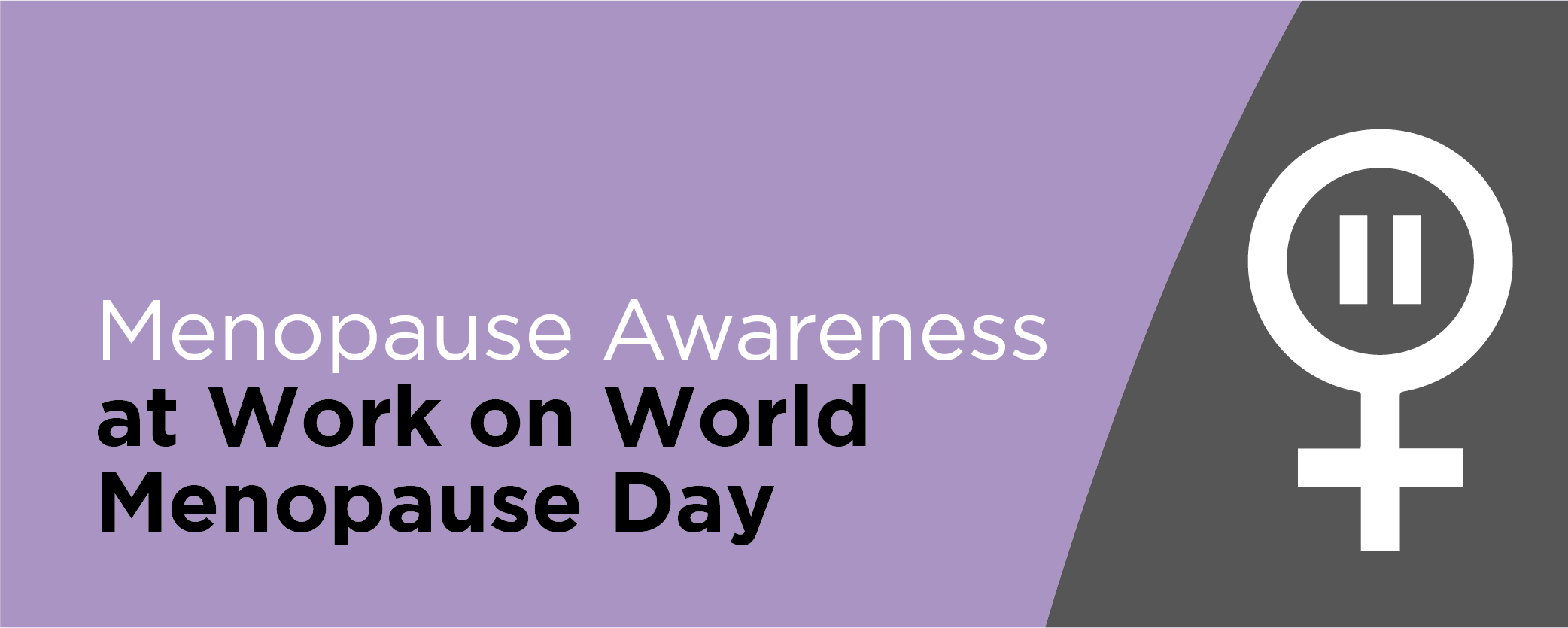- Basildon 01268244144
- Chelmsford 01245453800
- Colchester 01206217300
- London 020 4586 1280

World Menopause Day is held every year on 18 October. The day aims to raise awareness of menopause and the support options available for improving health and well-being.
The theme for World Menopause Day 2023 is cardiovascular disease. Hormonal changes associated with menopause can have wide-ranging impacts on cardiovascular health. During and after menopause, a woman’s body gradually produces less oestrogen than it used to, which can increase the risk of cardiovascular disease.
Implications for employers
As women stay in work for longer, and with women over 50 being the fastest growing segment of the workforce, most will go through menopause during their working lives. Studies have shown that menopause symptoms can significantly impact attendance and performance in the workplace.
With more staff in the workplace that may be affected by symptoms of menopause, employers need to be wary that if they fail to support or manage employees who are going through menopause fairly, not only do they risk alienating those staff and potentially increased absences, they risk, for example, claims for constructive and unfair dismissal as well as discrimination. There is also potential for issues for and within the team around them, including a lack of knowledge and confidence to provide adequate support.
Under the Equality Act 2010, individuals experiencing symptoms connected with menopause may be protected against discrimination under one or more of three protected characteristics: age, sex, and disability discrimination. The symptoms that can arise from menopause may impact an individual’s activities to such an extent that they amount to ‘disability’ under the Act. As symptoms can evolve, this is something that should be kept under review.
The Health and Safety at Work Act 1974 also provides for safe working, which extends to the working conditions when experiencing menopausal symptoms.
What can employers do?
There are various steps an employer can take to offer support and assistance whilst also assessing the risks that the workplace may pose for them. These could include:
Implementing a menopause policy
Appointing a menopause champion
Encouraging open and honest conversations about menopause
Providing training to staff about menopause and its effects
Providing training for managers to deal with any concerns in a sensitive way
Undertaking risk assessments to ensure the workplace does not worsen menopause symptoms
Implementing modifications where appropriate to ensure those affected are supported
These steps will foster a workplace where employees feel safe and supported, and employers are more likely to have a positive and supportive culture where they retain the skills and experience of its employees.
Putting a policy in place
One recommendation is a menopause policy. This should clearly outline the organisation’s procedures, for the benefit of all, to support and assist those going through menopause. The policy should focus on confirming the employer’s commitment to constructive, open, and honest conversations about the impact of menopause on staff and the type of support and modifications that may be available. Any menopause policy should include the following:
An introduction setting out the purpose of the policy and reaffirming a commitment to treating all individuals fairly
the aims and objectives of the policy
details of any action or support groups in place (or to be put in place) to help, alongside any intentions to work with menopause action groups and third-party groups
details of the types of support on offer, such as time away from work, encouraging communication, easy access to toilet facilities, and providing alternative tasks to heavy lifting to reduce fatigue and muscle strain.
Training
As with any policy, just publishing it is not enough. Employers must ensure that all management and HR representatives are fully aware of the menopause policy and can confidently respond and support colleagues in a non-discriminatory and open manner. All employees will feel more comfortable and secure.
Any training should ensure management and HR representatives understand how the law relates to menopause, how to talk with and encourage staff to raise any menopause concerns, how different stages and types of menopause can affect staff, what support and workplace changes are available to staff, how to deal with menopause issues sensitively and fairly, and how gender identity links to the menopause and why it is important.
If you have any questions or would like support in managing menopause in the workplace or require the appropriate policies or training, please get in touch with the BLHR & Employment Team at Birkett Long. We will be happy to discuss how we can help. We offer a fixed fee BLHR service which you can access here. Please contact me via email at samantha.randall@birkettlong.co.uk or call me on 01245 453838.



Comments